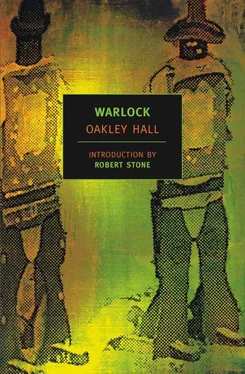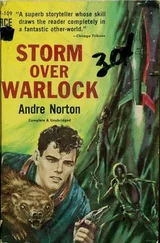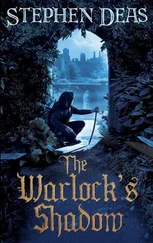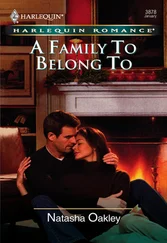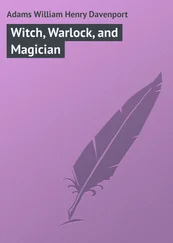“Lever that handle a little, son. Let’s hear him squeak.”
“This isn’t doing any good, for Christ’s sake, Abe!” Chet Haggin said.
“Let me take that knife to him!” Cade said.
Abe pressed downward on the handle, and Gannon closed his eyes. The pressure ceased and he opened them. He could see the shine of spittle at the corners of the mouth in the red beard. He gazed around at the others, dimly pleased that he could stare each one of them down.
“Hold off, Abe!” Chet said.
“Swear it, Bud!” Abe whispered. “Or I swear to God I will cut your hand off! I’ll kill you!”
“You had better kill me if you want to take your Regulators into Warlock,” he said. “For I will stop you otherwise.”
It was a way out if Abe wanted to take it, and he knew Abe did. Abe turned his face in profile, his long jaw set wolfishly and sweat showing on his cheeks. He looked pale. Wash said quickly, “I would surely like to see him trying to stop us!”
“I’d like to see that,” Walt Harrison said.
Abe jerked the knife free, and he gasped as the air got into the wound like another knife. He left his hand on the table to support himself now, as he watched Abe wipe the knife blade on his trouser leg. The old man was muttering.
“Get that neckerchief out and bind that hand up,” Chet said roughly. “There may be some that like the stink of blood, but damned if I do.”
“Kind of surprised to see he’s got any in him,” Whitby said.
Gannon fumbled the cloth from his pocket and tried to bind it around his bleeding hand. Joe Lacey came forward to help him, pulling the bandage tight and tying the ends together.
“Stop us then,” Abe said, in a cold voice. “We’ll be in tomorrow.”
“He’ll just ride back and warn Blaisedell out of town, God damn it, son!” Dad McQuown cried. “I say kill him or hold him down here!”
“Let me settle my account with him, Abe,” Cade said.
McQuown grinned mockingly. “Well, move along, Bud. Before my mind gets changed.”
Gannon looked around for his Colt. “Give it to him,” Abe said. “He can’t do anything with it.”
Walt Harrison handed him the Colt. He took it with his wounded hand. It slipped through his fingers and he caught it by slapping it against his leg. Awkwardly he slid it into his holster. Whitby thrust his hat on his head. He walked slowly through them toward the door. There he turned. Abe was still standing at the table, jabbing the point of his knife into the wood with a kind of listless viciousness.
“I’ve warned you,” Gannon said. “You are not to come into Warlock like you are set to do.” This time no one laughed.
He went outside into the buzzing darkness. Carefully he descended the steps. A dog began to bark, and the others joined in a chorus. They would be locked up, he remembered; they always were when men were coming and going at night.
In the saddle he sat motionless for a time, his eyes closed, his left hand clutching the pommel. One by one, gingerly, he sought to move the fingers of his right hand; his little finger, ring finger, middle finger, trigger finger. He sighed with relief when he realized that nothing had been severed, and swung the reins. Gripping the pommel, sitting stiff, heavy, and unsteady in the saddle, he touched in his spurs and whispered, “Let’s go home, girl.”
The mare mounted the first ridge in the pale moonlight, went down the draw, up the second ridge — he didn’t look back. A falling star crossed the far flank of the sky, fading, as it fell, to nothing. There was a cold wind. He shivered in it, but drew himself up straighter, released his grip on the pommel, and raised a hand to set his hat on straight. Lowering his hand, he brushed his thumb past the star pinned to his jacket, as though to reassure himself he had not lost it.
He felt a fury that was pain like a tooth beginning to ache. He said aloud, “I am the law!” The fury mounted in him. They had insulted him, cursed him, threatened him. They had beaten and stabbed him, and deliberated his death. They had presumed to judge him, and, finally, to release him in contempt of his warning. The fury filled him cleanly, at their presumption and their ignorance.
But how would they know differently? They had never known differently. He had tried to show them courage to make them see. Once, at least, they had known courage and had respected it. Maybe they would simply not respect it in him, or maybe they knew it no longer, knew now only fear and hate and violence. The clean fury drained from him; he had been able to show them nothing. And now he could almost pity Abe McQuown, remembering the desperation he had seen in Abe’s eyes as he leaned upon the knife, Abe fighting and torturing for the Right as though it were something that could be taken by force. For Right had been embodied in Curley’s death, and perhaps Blaisedell was as desperate in his way for Right as McQuown was. But he knew that Blaisedell would not cold-bloodedly kill for it, would not plot to take it by trick or treachery — not yet.
He had been riding for an hour or so in the heavier darkness under the cottonwoods along the river when he heard the shot. It was a faint, flat, far-off sound, but unmistakable. There was a silence then in which even the liquid rattle of the river seemed stilled, and then a ragged volley of shots. After another pause there were two more, and, after them, silence again.
He rode looking back over his shoulder. He could see nothing, hear nothing but the riffling of the river and the wind in the trees, the steady pad of the mare’s hoofs with the occasional crack of shoes against a rock outcrop. Finally he settled himself in the saddle again and into the weary rhythm of the ride back to Warlock, dozing, snapping awake, and dozing again.
Much later he thought he heard, off to the east, the clatter of fast-moving hoofs, but, coming awake with that unpleasant, harsh grasping at consciousness, he could not be sure. Awake, he did not hear it, and he thought the sound must have been only something he had dreamed.
46. JOURNALS OF HENRY HOLMES GOODPASTURE
April 18, 1881
IN VIEW of the importance of this morning’s Citizens’ Committee meeting, I will set down what happened there in some detail.
One of Blaikie’s hands arrived last night with the information that a great number of San Pabloites were gathered at the McQuown ranch, and, with this proof of McQuown’s intentions, all the members of the Citizens’ Committee with whom I spoke prior to the meeting were resigned to the conclusion that we were forced to undertake the formation of a Vigilance Committee at last. Obviously Blaisedell could not be expected to face alone this force of Regulators patently assembled to bring about his destruction, or his flight. The parallel with poor Canning’s fate was all too clear, and we would not be shamed again. Some were eager for war, and some were frightened, but almost all seemed firm in their resolve to back Blaisedell to the hilt.
The meeting was at the bank. All but Taliaferro attended: Dr. Wagner, Slavin, Skinner, Judge Holloway, Hart, Winters, MacDonald, Godbold, Pugh, Rolfe, Petrix, Kennon, Brown, Robinson, Egan, Swartze, Miss Jessie Marlow, and myself. And Clay Blaisedell, not a member, but our instrument.
The Marshal has not been looking well lately. Yet he seemed himself again in Petrix’s bank, as though he had recovered from an illness, and he had an air of ease and confidence about him that reassured us all. He did not, however, join us at the table — usually he sits to the right of Miss Jessie when she attends — but remained standing outside the counter while Petrix brought the meeting to order.
Jed Rolfe stated the premise: that we had, many times in the past, rejected the idea of a Vigilance Committee, but now, in his opinion, it was unavoidable.
Читать дальше
